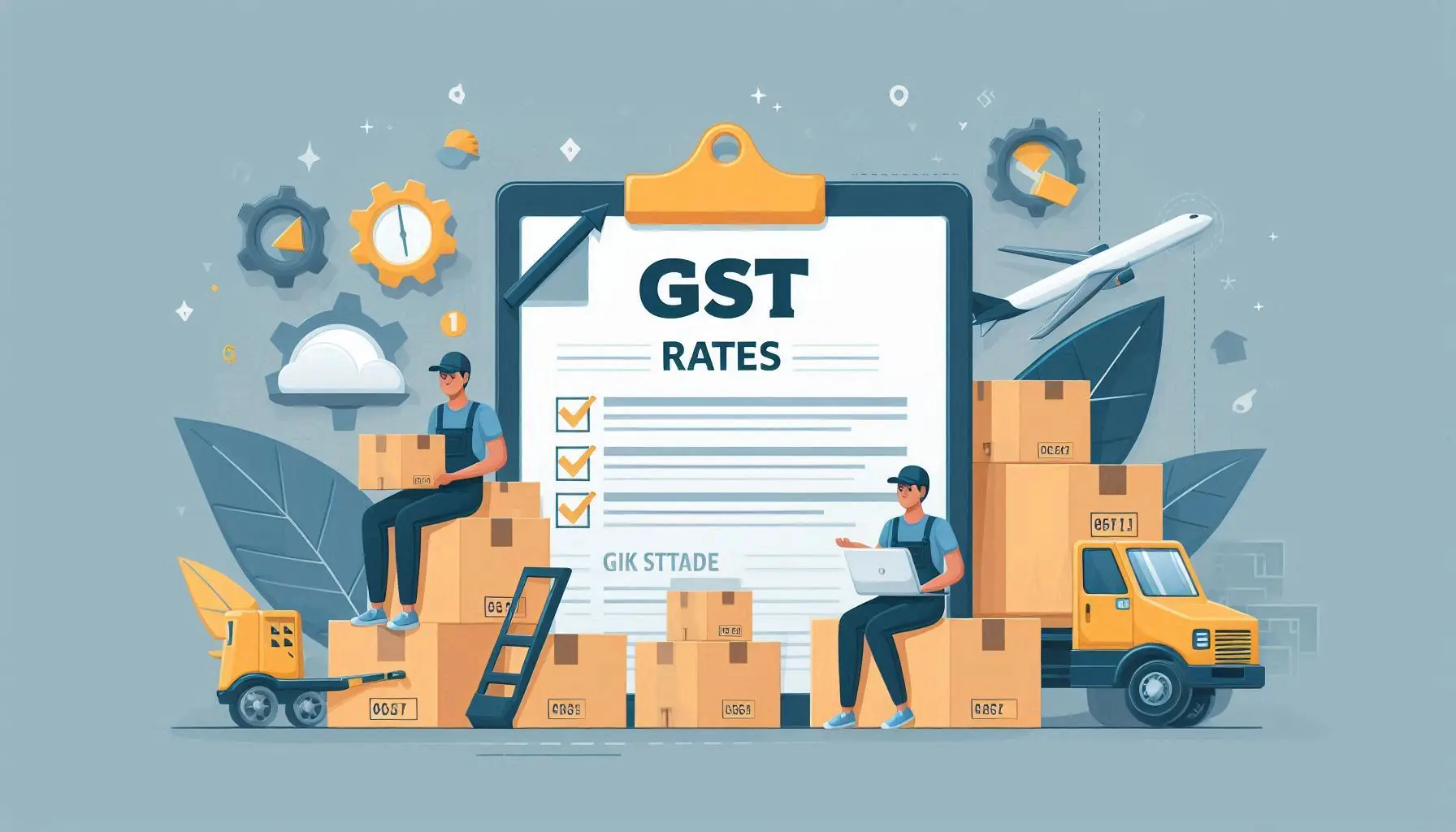If you are planning to move and are curious about how GST (Goods and Services Tax) impacts the cost of packers and movers, this guide is for you. We’ll break it down in simple terms so you can understand everything without the jargon.
Table of Contents
What is GST and How Does It Affect Packers and Movers?
GST is a single tax applied across India to simplify the taxation system. For packers and movers, GST is charged on services like packing, moving, and transporting goods. This tax ensures transparency in pricing and makes it easier to calculate the total cost of relocation.
GST Rates for Packers and Movers
Here are the basic GST rates you need to know:
- Packing and Moving Services: 18%
- Goods Transport Services:5% (if you can’t claim input tax credits)
- 12% (if you can claim input tax credits)
- Loading and Unloading Services: 18%
What Does This Mean for You?
If you’re hiring a full-service packers and movers company, most of their services will be taxed at 18%. For simple transportation of goods, the GST rate might be lower, depending on the service provider’s setup.
Understanding the HSN Code
What is an HSN Code?
The HSN (Harmonized System of Nomenclature) code is used to classify goods and services for taxation. For packers and movers, these are the main codes:
ServiceHSN Code
Goods Transport by Road 996511
Packing Services 998540
Other Services 999799
Why Does This Matter?
Knowing the HSN code ensures you’re charged the correct GST rate. It also helps businesses stay compliant with tax rules.
How GST Affects the Cost of Moving
Factors That Influence GST Calculations:
- Type of Service: Packing, transportation, or full-service moving.
- Distance: Longer distances may result in higher transport costs, which affect GST.
- Value of Goods: A higher declared value can mean higher GST.
Including Packing Costs in GST
If packing services are included in your moving package, the entire service will likely be taxed at 18%. This simplifies billing but may slightly increase costs.
Benefits of GST for Packers and Movers
For Customers:
- Transparent Pricing: No hidden charges.
- Uniform Rates Across India: You pay the same GST rate, no matter where you’re moving.
- Reliable Service Providers: Only registered businesses can charge GST, which ensures professionalism.
Looking for reliable and affordable packers and movers in Indore? Visit our dedicated page to experience top-notch relocation services tailored to your needs. With transparent pricing and expert handling, we make your move hassle-free. Explore Packers and Movers Indore today!
For Businesses:
- Simplified Tax System: GST replaced multiple taxes, making compliance easier.
- Input Tax Credits: Businesses can claim back GST paid on certain expenses, reducing costs.
Are There Any GST Exemptions?
Some transport services are exempt from GST, like:
- Transport of agricultural products.
- Non-motorized vehicles (like carts).
- Relief materials for disasters.
GST Registration for Packers and Movers
Who Needs to Register?
Any packers and movers business with an annual turnover above Rs. 20 lakh (Rs. 10 lakh in special states) must register for GST.
What Documents Are Required?
- PAN Card
- Aadhaar Card
- Business Address Proof
- Bank Details
- Digital Signature
Quick Tips for Customers
- Always ask for a GST invoice from your service provider.
- Check the HSN codes and GST rates on the bill to ensure accuracy.
- Know that you’re paying for transparency and better services.
By understanding GST rates and how they apply to packers and movers, you can plan your move more efficiently. Whether you’re moving within the city or across the country, this knowledge will help you make informed decisions and avoid surprises in your bill.
FAQ: GST on Packers and Movers in India
What is the GST rate for packers and movers?
The GST rate is 18% for full-service packers and movers, including packing, loading, and moving services.
Is GST charged on packing charges?
Yes, packing charges are taxed at 18% GST if included in the moving service.
What is the GST rate on goods transport services?
- 5% GST (no input tax credit).
- 12% GST (with input tax credit).
Are any transport services exempt from GST?
Yes, exemptions include agricultural goods, disaster relief materials, and non-motorized transport.
What is the HSN code for packers and movers services?
- Goods Transport by Road: 996511
- Packing Services: 998540
Is GST applicable on international relocation?
Yes, international moving services are subject to GST, usually at 18%.
Why do some movers charge 5% GST instead of 18%?
Movers offering only transportation services (not packing or loading) may charge 5% GST. Full-service providers typically charge 18%.
Do different transport services have different GST rates?
Yes, basic goods transport services may attract 5% or 12%, while comprehensive services are taxed at 18%.
Who pays GST when hiring a Goods Transport Agency (GTA)?
Businesses hiring a GTA often pay GST under the reverse charge mechanism.
Is GST registration mandatory for transporters?
Yes, if their annual turnover exceeds ₹20 lakh (₹10 lakh in special states).
Can movers claim GST input tax credit (ITC)?
Yes, businesses offering packers and movers services can claim ITC on eligible expenses.
How does GST impact the cost of moving?
GST adds to the total cost, but it ensures transparent pricing. Packing and moving services are taxed at 18%.
How can I ensure correct GST rates are charged?
Ask for a detailed GST invoice and verify the HSN code and rates applied.



